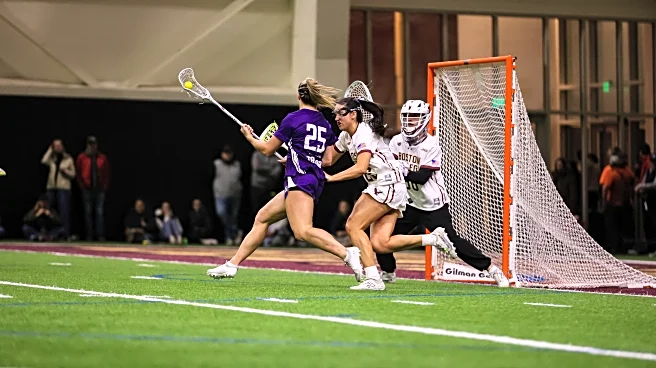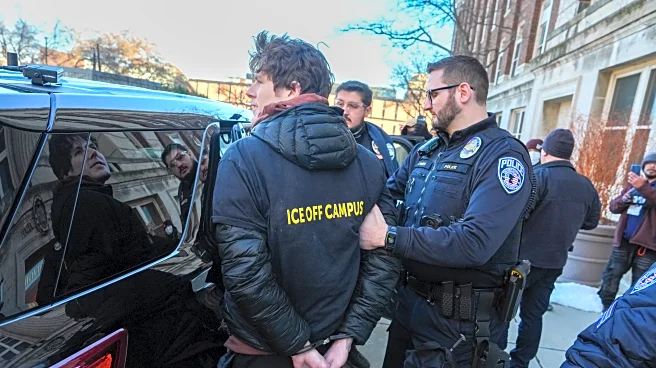What's Happening?
A federal appeals court has temporarily halted the requirement for Border Patrol Cmdr. Gregory Bovino to appear daily in court to report on the use of force in 'Operation Midway Blitz.' This decision came from the 7th U.S. Circuit Court of Appeals, which
stayed the order from U.S. District Judge Sara Ellis. Judge Ellis had mandated Bovino's daily appearances to address concerns over immigration enforcement actions, particularly allegations of excessive force by agents under his command. The Department of Justice argued that the order interfered with Bovino's duties, prompting the emergency motion to the appellate court. The court has asked the plaintiffs to submit a brief by the following day, while the courthouse experienced a brief lockdown due to an unrelated security issue.
Why It's Important?
The ruling highlights the tension between judicial oversight and executive enforcement of immigration laws. The decision to stay the order underscores the potential impact on the operational capacity of the Border Patrol, as Bovino's daily court appearances could detract from his leadership duties. This case also reflects broader concerns about the use of force in immigration enforcement, a contentious issue in U.S. politics. The outcome could influence how similar cases are handled in the future, affecting both legal precedents and operational protocols for federal agencies.
What's Next?
The appellate court's stay is temporary, pending further legal proceedings. The plaintiffs in the underlying lawsuit are required to file a brief, which will likely influence the court's final decision. A full hearing on a preliminary injunction is scheduled for November 5, where more comprehensive arguments will be presented. The outcome of this case could prompt reactions from political leaders and civil rights organizations, potentially leading to policy changes or further legal challenges.
Beyond the Headlines
This case raises questions about the balance of power between the judiciary and executive branches in overseeing law enforcement practices. It also touches on the ethical implications of using force in immigration operations, particularly in urban settings. The requirement for body cameras and detailed reporting could set a precedent for transparency and accountability in federal law enforcement.
















